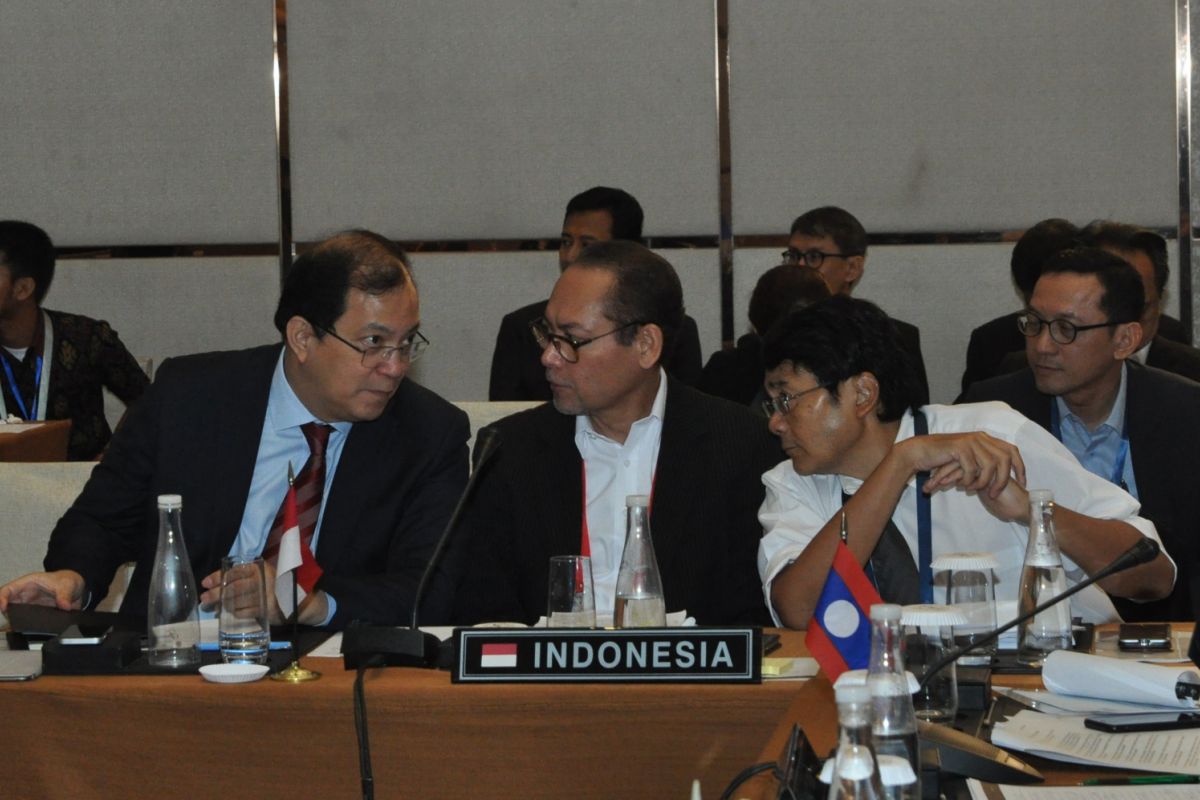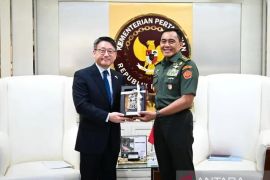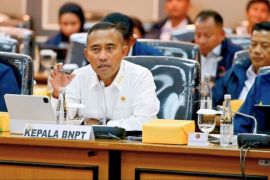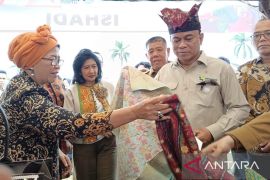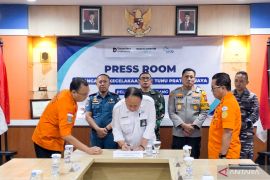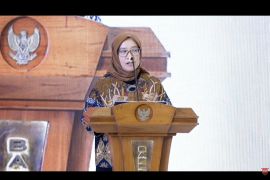Countries along the Indian and Pacific Oceans (Indo-Pacific region) are considered to have the potential to become new objects of attraction of the constellation of world power.
The Indo-Pacific region is the area with the most dynamic economic growth in the world today, where countries participating in the East Asia Summit (EAS) are part of the region.
Every year, EAS is followed by ASEAN leaders plus eight speech partners, namely China, Japan, South Korea, India, Australia, New Zealand, Russia, and the United States.
The economic size of the EAS participating countries (in terms of GDP-Purchasing Power Parity) reaches more than US$65.8 trillion this year.
In the next three years, it is estimated to reach $95.6 trillion. This is an ideal platform for economic cooperation. This is the unique strength of the EAS, unmatched by other regional groupings in the Indo-Pacific region.
Indonesia wants to make the Indo-Pacific as an area that is open, transparent, inclusive, and cooperative using the 8th EAS mechanism as the main platform.
Therefore, Indonesia is developing an outlook regarding the Indo-Pacific with these principles.
At the eighth EAS ministerial meeting at the Singapore Expo on Aug 4, Indonesia explained that the maritime, connectivity, and sustainable development fields are the three points of cooperation promoted by Indonesia for the prosperous and peaceful Indo-Pacific.
Indonesia develops economic cooperation based on mutual interests, through increased maritime cooperation and connectivity as a driving factor.
At the US-Indonesia Investment Summit 2018 here on Thursday (Aug 27), the US Ambassador to Indonesia Joseph R. Donovan stated that Indonesia was an important and strategic partner for the US in the Indo-Pacific region.
Driven by its young population, growing middle class, and expanding use of new technologies, Indonesia will play an even greater leadership role in the integration and development of the Indo-Pacific region.
Certainly, one of our aspirations for Indonesia`s future is a flourishing trade relationship with the United States, the ambassador noted.
"I was especially pleased to see Minister of Trade Enggar lead a delegation of private businesses to Washington D.C. in July to explore ways to expand our bilateral trade, and I welcome Enggar`s call to increase our bilateral trade to $50 billion (about Rp700 trillion) a year," he remarked.
The United States believes that our bilateral trade should be free, fair, and reciprocal so that it can grow to its full potential, whether that is $50, $100, or $150 billion in the years to come.
The ambassador noted that shortly before his visit here, Secretary Pompeo unveiled the US strategy for advancing a free and open Indo-Pacific.
America, and the entire world, has a stake in the prosperity and stability that flows from that vision. Indonesia lies, quite literally, at the center of this region.
America wants to contribute to Indonesia`s prosperity, fostered through the private sector partnerships that naturally develop from fair and reciprocal trade, open investment environments, transparent agreements between nations, and improved connectivity.
"We are committed to expanding our economic engagement in the Indo-Pacific region and in Indonesia," he remarked.
The United States will continuously strive toward the goal of a trade and economic relationship that abides by the principle of partnership economics - freedom and openness, a commitment to democracy and good governance, and respect for local autonomy and national sovereignty.
"As part of "America`s Indo-Pacific Economic Vision," we announced a number of initiatives focused on enhancing the development of energy, infrastructure, and the digital economy sectors essential to the Indo-Pacific`s economic future," he pointed out.
Through the Digital Connectivity and Cybersecurity Partnership, the Infrastructure Transaction and Assistance Network, and the Asia Enhancing Development and Growth through Energy initiatives, the US government will support the efforts of world-class US private sector companies, such as those gathered here, to develop markets and to build partnerships.
Meeting the needs of Indo-Pacific nations in energy, infrastructure, digital economy, and human resources development will take a staggering amount of investment. The Asian Development Bank estimated that $26 trillion will be needed by 2030, he added. Indonesia`s current infrastructure push likewise needs trillions of rupiah to succeed.
"We recognize that no government can mobilize the resources to accomplish these tasks alone. But we also know there is over $50 trillion of private capital sitting on the sidelines in banking centers, such as London, New York, and elsewhere," he explained.
By using government resources to catalyze private business opportunities and by creating a level playing field for US firms to compete in Indonesia, we can create the conditions that will bring this private investment off of the sidelines and into productive enterprise. Only then will we be able to achieve our vision for the Indo-Pacific and a vibrant US-Indonesia economic partnership, he elaborated.
Meanwhile, Director General of ASEAN Cooperation at the Indonesian Ministry of Foreign Affairs, Jose Antonio Morato Tavares, stated that Indonesia took the initiative to hold Retreat Meetings for Senior Officials to discuss specifically the Indo-Pacific Concept in Jakarta. The retreat was attended by all ASEAN member countries at the level of SOM chairman.
Located at the pivot of the Pacific Ocean and Indian Ocean region, Indonesia concerns that that ASEAN`s proactive role is inevitable and urgent amid geopolitical and geostrategic changes in the region.
For that, he continued, Indonesia encourages ASEAN to be able to develop a collective outlook or framework with a focus on several fields of cooperation that are relevant to the development of region, namely maritime, connectivity, and sustainable development agenda.
The concept of Indonesia is intended to provide added value to the existing ASEAN cooperation mechanisms in realizing peace, stability, and prosperity in the region for mutual benefit, especially through strengthening the East Asia Summit.
During the meeting, it was agreed that ASEAN needed to develop a shared insight on the Indo-Pacific Concept based on ASEAN`s centrality.
The meeting also agreed to further strengthen the basic principles, modalities, and fields of cooperation under the concept of cooperation.
Editing by Eliswan
Reporter: Azis Kurmala
Editor: Heru Purwanto
Copyright © ANTARA 2018
